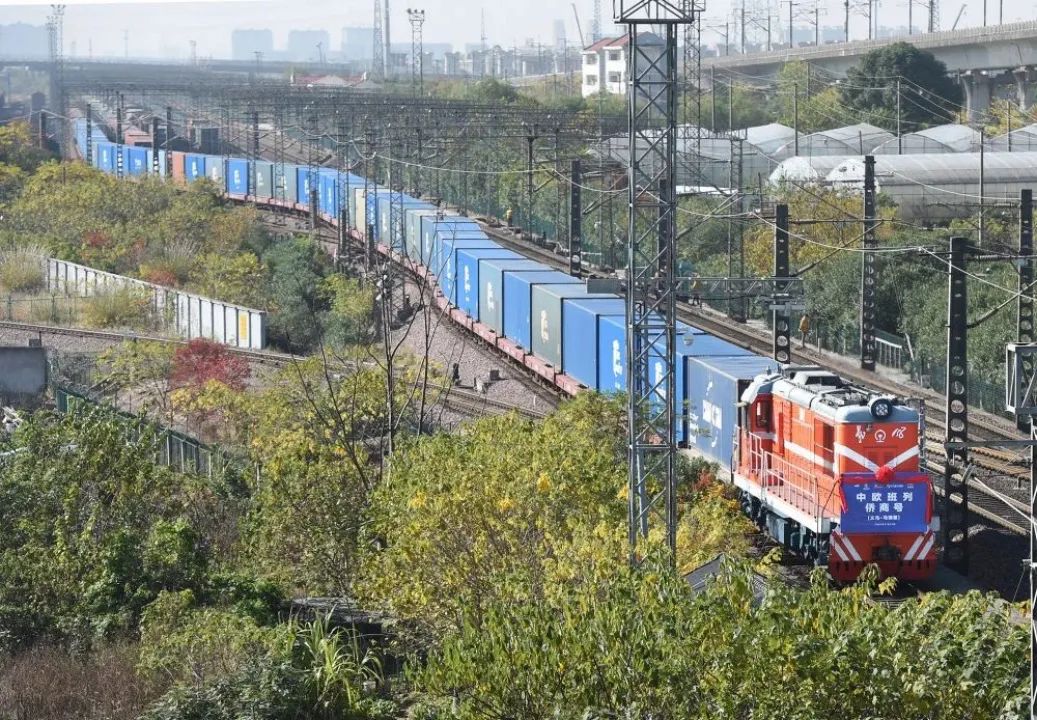Undercurrents in AI's 'Major Artery' of Commerce: AI Startups Flock to Yiwu for 'Gold Rush'
-
The once universally adored large models in the first half of 2023 are gradually 'falling out of favor.' Earlier, Baidu founder Robin Li stated that 'redundant development of large models is a waste of resources,' followed by Baichuan Intelligence co-founder Hong Tao's remark that '99% of industry-specific large models may be replaceable.'
After the 'hundred-model battle,' large model entrepreneurs, exhausted from competing over parameters and ratings, are gradually 'waking up': focusing on AI-native applications holds more value. Internet giants are directly reflecting this shift in their actions: Baidu unveiled over 20 AI-native applications, Douyin officially launched AI creation features, Wu Yongming took over as Alibaba's 'top leader,' ushering in Taotian's AI era...
Startups are actively showcasing their capabilities in various forums and roadshows, introducing hundreds of AI applications that extend into sectors such as e-commerce, finance, gaming, and office work. These include tools like AI painting, AI translation, and AI video, among others.
However, from the 9.9-photo-shooting Miaoya Camera to the cross-language video translation tool HeyGen, most AI application products find it hard to escape the fate of peaking in popularity upon entering the public domain. Behind their 'flash-in-the-pan' success lies the challenge of commercialization, with practical application scenarios being a critical factor.
Dubbed the 'entrepreneurial paradise' by many gold diggers, Yiwu has recently drawn a wave of AI startups looking to strike it rich.
'Next stop: Yiwu. Please prepare to disembark.' The bustling atmosphere of Yiwu begins with the sound of rolling suitcases at the train station. Since the start of 2023, many young people—some fresh graduates, others having quit their jobs at major internet companies—have flocked to Yiwu, the 'world's supermarket', with a clear goal in mind: entrepreneurship and gold digging.
On social platforms like Xiaohongshu and Douyin, posts tagged with #QuittingJobs #YiwuEntrepreneurship have become a new trend, accompanied by numerous guides and comments. In August 2023, the number of market entities in Yiwu surpassed 1 million, while the city's permanent population is less than 2 million—meaning one in every two people could be an entrepreneur.
Yiwu is not a first-tier city, but its low cost of trial and error, over 10 billion parcels shipped annually to global markets, a long-established business-friendly environment that offers everyone a fresh start, and the recent landing of Zhejiang's Provincial Science and Technology Innovation Mother Fund (Phase II) in Yiwu—with a scale exceeding 3 billion yuan—to encourage technological innovation, all contribute to its enduring vibrancy and appeal.

Wave after wave of entrepreneurs have flocked to Yiwu, earning it the nickname 'People's Business School.' The city proves its worth through consistently growing numbers: From January to November this year, Yiwu's total import-export value exceeded 500 billion yuan for the first time, reaching 522.12 billion yuan - an 18.1% year-on-year increase. However, this growth hasn't brought peace of mind to local merchants, even as their own factories' import-export sales show similar upward trends.
This sense of unease is not unfounded. In recent years, while overall supply chain advantages remain, rising costs of raw materials and labor, coupled with the rise of omnichannel e-commerce, have led to orders becoming "smaller and more fragmented." Traditional factories are losing the low-cost advantages they once relied on for survival, while expensive traffic and declining operational conversion rates continue to plague small and medium-sized businesses.
The explosive popularity of ChatGPT in early 2023 brought unprecedented attention to AI. Many Yiwu-based businesses have recognized that AI tools can save labor costs in operations, office work, and marketing, and have begun experimenting through various channels. The Yiwu Commodity City Group has also seen the opportunities AI brings to traditional trade. While committing to embracing this technology, they are deeply considering "what Yiwu has and what Yiwu can do."

For over 40 years, Yiwu has reaped the benefits of its excellent supply chain backend. However, it must be admitted that the region lacks technological DNA when facing cutting-edge technologies. Moreover, since their inception, large AI models have required massive capital investments. Developing proprietary large models and building AI applications based on them is an extremely cost-ineffective endeavor.
After thorough consideration, Yiwu Market Group has entered into a strategic collaboration with institutions such as Renmin Net, Tencent, and Tsinghua University to launch the world's first large language model in the commerce sector. This is concretely demonstrated by the upgrade to Chinagoods AI 2.0, with many AI startups rushing to join.
Qilian AI, a company focused on AI collaboration for Douyin Feishu and new media sales, is among the first batch of startups to join. At the Yiwu Trade Fair, the company's marketing director, Shao Xiong, established connections with over 100 Yiwu merchants. He observed that many merchants are eager to use AI tools to address bottlenecks encountered during business development but lack the means to implement them. On one hand, most small and medium-sized enterprises do not have sufficient manpower or financial resources to develop AI tools in-house. On the other hand, the barriers to tool usage and their own capabilities pose limitations.
This situation resembles the early days of mini-programs, where almost everyone was uncertain about their architecture, capabilities, and application scenarios. Businesses had to explore on their own, leading to snail-paced development. It wasn't until WeChat service providers emerged—mastering the underlying architecture while assisting enterprises in creating proprietary mini-programs—that the ecosystem achieved customer acquisition, transactions, and retention.
The success of companies like Weimob and Youzan demonstrates the inherent value of service providers. Similarly, in the AI era, the market may not need too many large models, but it certainly requires more AI service providers. Lingtu Technology, for instance, specializes in AI image-text processing, offering tailored solutions for Yiwu small commodities, including product detail page generation.
Jewelry and accessories are one of the pillar industries in Yiwu. He Daoting, co-founder of Lingtu Technology, explained that accessories are objects that occupy very small areas in images. Additionally, some pendants and bracelets feature hollow designs, which significantly increases the technical difficulty when generating product images using AI.
Lingtu Technology, which has invested considerable effort in precision, believes there is an exceptionally high compatibility between their solutions and Yiwu's market. As Yiwu's jewelry merchants increasingly use their products, new demands and emerging challenges will drive continuous iterations of their offerings.

Image source: Lingtu Technology
This aligns with the perspective of Wang Tongsheng from Zhuo'ao Youxiao, whose company primarily provides brand marketing solutions for enterprises. In his view, Yiwu's complete supply chain and clear demands can effectively reduce communication costs. Additionally, many product categories in Yiwu have achieved large-scale operations, and with benchmark cases established, it becomes easier to penetrate the entire industry.
Globally, Yiwu Market stands out as a highly representative traditional trade market, offering abundant scenarios for 'AI-native applications.' Sentence Interactive, a company focused on intelligent dialogue and private domain operations, regards Yiwu as its primary implementation site. From product digitization and creative production to intelligent publishing and smart customer service, AI technology can infiltrate numerous aspects.
Yiwu, with its 'small commodities, large circulation' application scenarios, does not aim to 'monopolize the benefits.' Instead, it welcomes service providers with an open attitude. Thus, it’s only natural that AI startups, often labeled as 'cutting-edge,' are flocking to Yiwu to seek opportunities. However, amid the widespread hype around AI, the market's voices have also become increasingly complex.
Two flowers bloom, each telling a different story.
Although both are AI applications, different service providers in Yiwu tell different stories. Walking on the streets, you can see AI digital human advertisements and AI-translated business cards everywhere; marketing calls come one after another, telling you about the 888 yuan/set package with discounts for continuous monthly subscriptions...
During visits to Yiwu's industrial belt, some merchants disclosed to Whale Business that they had been deceived by numerous AI application service providers: the products were varied but ineffective, and after-sales service was difficult to obtain—essentially a big scam.
Market chaos was also confirmed by Tekan Digital Human Product Manager Qing Shen, who learned from serving clients that in the first half of the year, a group of AI application agents emerged in the market, making exaggerated claims about how much money digital human livestreaming could earn. 'They lure people in with promises of helping them make money, only to exploit them,' he said.
The chaos reflects the lack of unified industry standards and the ambition of various players to seize opportunities. Around 2000, Jack Ma founded 'China Yellow Pages,' the first website in China providing internet business information, followed by countless portal websites emerging rapidly.
At that time, Yiwu merchants, riding the wave of China's accession to the WTO, ramped up their export businesses. Faced with the complex international market, many merchants were at a loss. Websites that could solve the problem of information matching in business trade became a 'solution' for many merchants.
Zhu Yanjun, founder of Yifan Daily Goods, once recalled to Whale Business that many salespeople initially approached door-to-door product promotions with a trial mindset. However, they soon discovered a significant gap between expectations and reality, leading many to eventually withdraw their investments in this area. Yifan was not an isolated case, as these inconsistent websites gradually disappeared.
Looking back, from the perspective of the Yiwu Commercial Group, it indeed missed the opportunity to platformize during the internet boom. The birth of Chinagoods is only three years old. Consequently, Yiwu merchants, transitioning from dealing with yellow page promoters to e-commerce operation service providers, have had to rely on their own judgment and trial-and-error processes.
Entering the AI era, Mall Group proactively innovates and makes changes, transforming into a 'fourth-party service platform'. Faced with a vast number of service providers, it integrates them into the Chinagoods platform through strategic partnerships.
From the perspective of past market chaos, 'trust' is the 'Berlin Wall' between service providers and business operators. After the 2023 Yiwu Fair, Wang Tongsheng's biggest takeaway from communicating with most merchants was a lack of trust, making it difficult to advance to the next stage of cooperation.
Using platforms to find service providers can alleviate trust issues, as the platforms themselves filter out unqualified providers. He Daoting also affirmed the value that platforms bring. She told Whale Business that during her offline research, many merchants reported encountering shell companies that took money and disappeared.
"Starting from scratch in the market makes it very difficult to build trust," He Daoting said. With the intervention of the mall group, the service provider market has become more standardized, which is a great help to both merchants and service providers.
Under the traction of Chinagoods platform, many service providers have moved closer to merchants. However, with market irregularities still uncurbed and benchmark service providers yet to emerge, this remains a protracted battle. In Qing Shen's view, "Results should speak through product effectiveness."
Taking digital humans as an example, he believes the criteria for measuring effectiveness can be divided into two aspects: objectively, it's the actual live-streaming data—comparing sales volumes between real humans and digital humans; subjectively, there are relatively more factors, such as overall visual effects, naturalness, and whether it meets the needs of live-streaming operations.

Image source: Tekan Technology
When selecting partners, Tekan also evaluates whether clients are suitable for AI investments, rather than accepting all comers. Qingshen stated that a successful model is crucial. Large enterprises often have greater capacity for trial and error, and generally choose to collaborate with industry leaders first. Once proven successful, the model is then extended to small and medium-sized businesses in the same sector.
In Shao Xiong's eyes, building a sustainable business requires providing end-to-end services. Taking ChatGPT as an example, some users who paid for a yearly subscription found their access interrupted midway, with no one to address the issue or process refunds. Therefore, Qilian AI emphasizes its compliance and offers full-chain services including API integration, tool utilization, and backend maintenance. Similarly, this virtuous cycle strengthens customers' willingness to pay.
As one of the main hubs for cross-border trade, Yiwu stands out with its complete supply chain, serving as a primary sourcing base for various e-commerce platforms. In recent years, businesses have been exploring digital tools to reduce costs, improve efficiency, and identify new growth opportunities.
With the explosive growth of AI-generated images and video content, AI tools have gained widespread favor. As businesses strive to seize opportunities in cross-border e-commerce, Yiwu has also become a 'lever' for AI startups to commercialize industrial applications.
From the perspective of the 'technology hype cycle,' during the process of AI technology evolving from its infancy to steady growth, there are certainly no shortage of companies trying to take shortcuts and exploit the market. Among them are many startups that have temporarily donned the 'AI cloak,' infiltrating the entire chain including training, agency operations, and development services. When even courier packing aunties are passionately discussing AI, this AI 'bubble' is already on the verge of bursting.
Facing life and death, startups that truly focus on combining technology with scenario innovation and large tech companies are squeezing out the 'bubbles' in competition.
The founding team of Tekan Digital Humans all came from major tech companies and have a deep understanding of the weaknesses in their organizational structures and business models. When explaining their competition with these giants, they clearly know where their advantages lie. On one hand, startups have more flexible organizational structures, faster response times, and quicker product iterations. On the other hand, startups are more focused in their business, concentrating their efforts on niche scenarios and providing tailored services, ensuring better product outcomes and service quality.
"Small innovations rely on big companies, while major innovations still depend on startups," said Wang Xiaochuan, founder of Baichuan Intelligence, in a media interview, affirming the value of entrepreneurial firms. However, startups often lack the years of accumulated user data and feedback that large companies possess. Implicitly, the path for these entrepreneurs lies in attracting more customers and continuously iterating their products through practical application.
The Yiwu market boasts 75,000 business stalls across 26 major categories, with a vast and high-quality pool of merchants. Beyond the hype, only AI startups that genuinely invest in technology, develop and innovate in applications, and deeply engage in industry services can withstand market scrutiny, gain merchant recognition, and aspire to become top service providers in specific fields or categories.
Efforts often yield returns. With benchmark cases, these companies can replicate their successful experiences to other merchants and categories in the Yiwu market, expanding to other industrial belts, aligning with Yiwu's 'front shop, back factory' and 'industrial-trade linkage' characteristics. The starting point for these entrepreneurs may be Yiwu, but their destination, like Yiwu's business operators, is to 'buy globally, sell globally'.

![Image source: Xinhua News Agency]
When the industrial depth and vertical specialization of Yiwu's commerce and logistics are continuously trained and learned by AI algorithms, the accumulated big data assets will further accelerate the digital transformation of vertical industries. This phenomenon may first manifest in industrial cloud SaaS platforms, then penetrate deeper into source factories at the backend, while diversifying distribution channels at the frontend - ultimately driving fragmentation and flexibility across design, manufacturing, and distribution processes.
The curtain has risen on 2024, with a multitude of AI startups long prepared for application deployment and scenario development—their breakthrough moment likely arriving this year. Yiwu, as the largest commercial application scenario, is currently a hotbed of undercurrents. In corporate competition, it's not the big fish eating the small, but the fast overtaking the slow. Those who can swiftly seize opportunities may gain the upper hand first.
